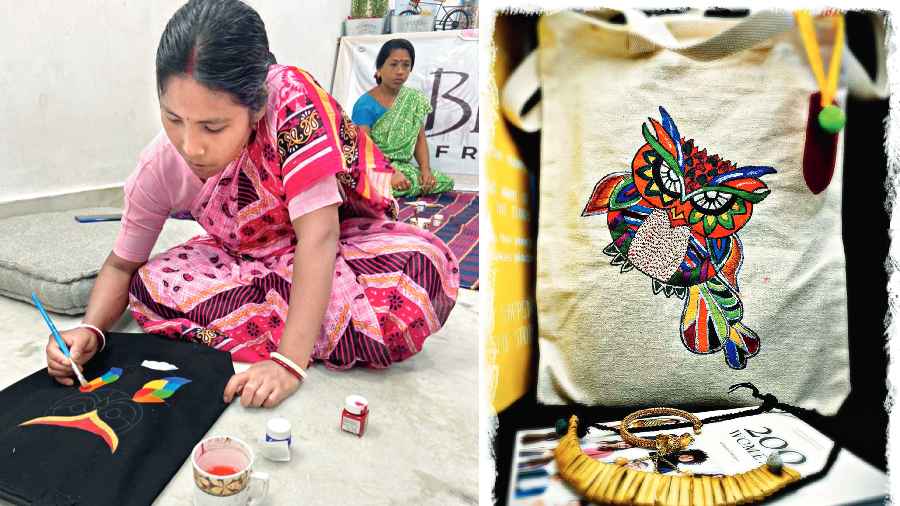A group of domestic workers in Cooch Behar in north Bengal are making bags that are being sold online all over the country.
The women learnt the skill when they had no livelihood in the pandemic. But the organisation that provided the training thought it was not enough to teach them a skill. They should be able to make an earning out of it, too.
For four hours a day, the women stitch the totes, draw the designs and paint them. They get Rs 200 a day. The bags are sold online.
The sale of the bags has gone up over time, said a member of the organisation that started work in the area in December 2020.
“Initially, we sold 10 bags in a month. It is about 100 now. With time, their skills have gone up, too,” said Srija Chakraborty, of Bihongo — Free to Fly that initiated the livelihood programme Nakshi Ghar to provide sustainable employment to women.
Bihongo’s work in the area started with the children of the domestic help.
“We soon realised that the children were coming to us with empty stomachs because their fathers were out of jobs and the houses where their mothers worked had let them go,” said Srija.
Bihongo started the training for the mothers. Some of the women had never touched a brush and struggled to write their name.
“The first six months went in training. But our ultimate objective was to help them earn out of it,” she said.
Bihongo’s mission is to “create an environment of sustainable social and financial security to our artisans, who never could implement their talents due to societal deficiencies and restrictions.”
The women have now rejoined work as domestic help but come to paint and stitch bags in the evening.
Namita Roy, who has three children to provide for, works at four houses. Her evenings are reserved for the workshop.
“I had never painted and learnt it at the age of 40. Initially, there were many things that I could not make but I have learnt. The money helps me to run my family,” said the 41-year-old.
The designs on the bags are by Rikhia Chakraborty, Srija’s collaborator in the project.
